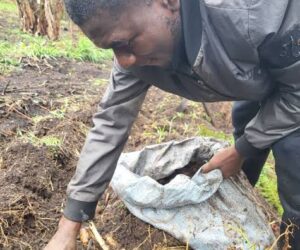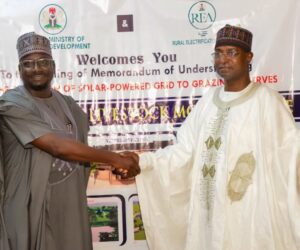By Ibironke Ariyo
Mr Opeyemi Elujulo, Founder of Youth in Agroecology and Restoration Network (YARN), has warned that large-scale industrial farming could create serious health and environmental problems in Nigeria.
Elujulo, also Executive Director of YARN, issued the warning in an interview with the News Agency of Nigeria (NAN) on Friday in Abuja.
He said such industrial farming was being promoted by JBS Foods International.
The agroecology advocate stressed that Nigeria must carefully examine JBS’s global record before embracing its investment proposals.
NAN reports that Brazilian meat packer JBS signed a memorandum of understanding with Nigeria for a 2.5 billion dollar investment, including six new factories.
According to the agreement, three factories would produce poultry, two beef, and one pork.
The deal also covers a five-year investment plan involving feasibility studies, budget estimates, and a local supply chain development programme.
Elujulo, however, noted that JBS, the world’s largest meat processor, has been globally linked with deforestation, biodiversity loss, and widespread environmental pollution.
“Wherever big corporations like JBS go, communities are left with polluted water, degraded land and health risks.
“These problems range from respiratory issues to antimicrobial resistance caused by chemical use in industrial livestock systems,” he added.
He warned that such farming models could displace smallholder farmers by competing for land and water, while consolidating control of food systems in the hands of multinationals.
On whether rejecting JBS’s investment could harm young farmers, Elujulo disagreed.
He explained that Nigerian youths increasingly embrace agriculture through agroecology, a sustainable system that reduces costs and reliance on imported inputs.
Recalling his own experience, he said: “Growing up in a farming household, I hated agriculture. I even rejected agriculture as a course in school.
“But when I was introduced to agroecology, everything changed. For eight years, I’ve worked nationally and internationally to promote sustainable farming.”
He stressed that young Nigerians must not be drawn into unsustainable industrial models.
Instead, they should be equipped with agroecology skills that reduce costs and reliance on imported seeds and chemicals.
“Agroecology enables farmers to produce organic fertilisers and biopesticides, making agriculture resilient rather than a debt trap,” he explained.
Elujulo warned that industrial meat plants could impose hidden costs, including waste management, health monitoring, and environmental remediation.
He argued that exposure to industrial models would only perpetuate dependence on imported inputs.
“These are cycles that sustainable food system advocates are working to break.
“The short-term promise of jobs and food security is not worth long-term pollution and health burdens. We must build resilience, not vulnerability,” he said.
The youth advocate urged the government to support smallholder farmers, strengthen sustainable practices, and resist foreign-led industrial models with harmful legacies elsewhere. (NAN)(www.nannews.ng)
Edited by Dorcas Jonah/Kamal Tayo Oropo








